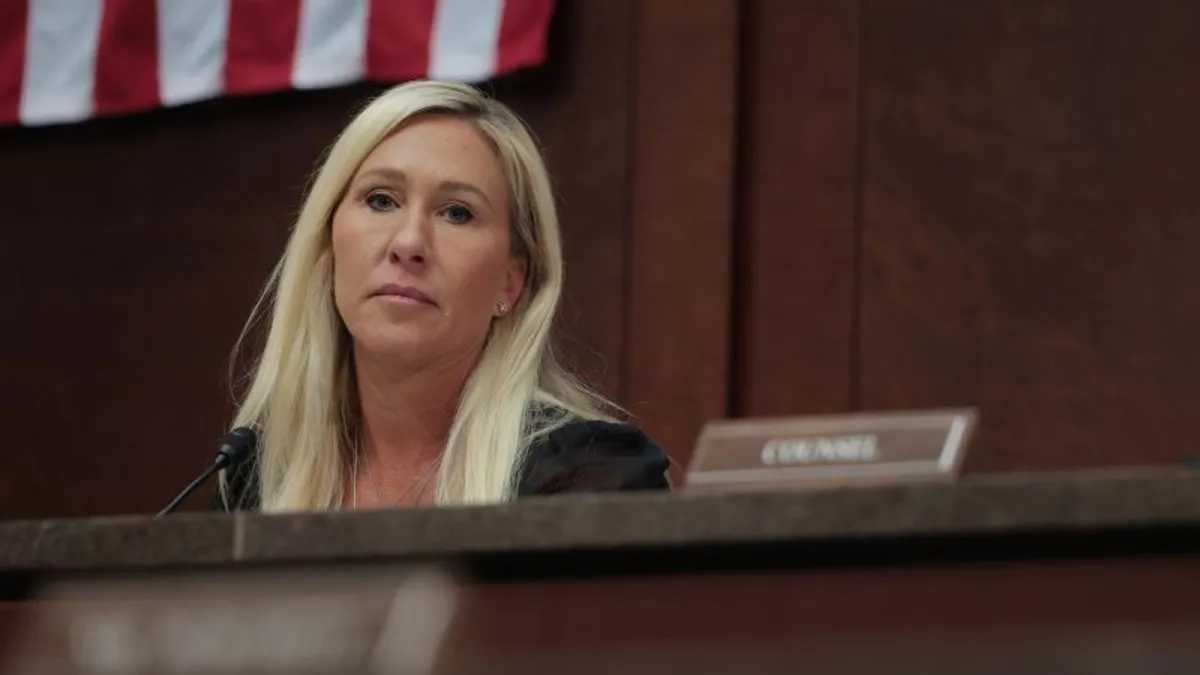
Today, a significant subcommittee hearing led by Rep. Marjorie Taylor Greene and other House Republicans will take place, focusing on PBS and NPR. This hearing aims to tarnish the reputation of these public broadcasters with accusations of bias and to justify their defunding. For PBS and NPR, the stakes are high as they strive to defend their existence while educating the public on the actual operations of public media.
The hearing, titled “Anti-American Airwaves: Holding the heads of NPR and PBS Accountable,” will commence at 10 a.m. ET. Witnesses at the hearing will include NPR CEO Katherine Maher, PBS CEO Paula Kerger, a local station operator, and a conservative critic of taxpayer-funded media. This hearing is designed to advance long-standing Republican criticisms of PBS and NPR, with President Donald Trump recently labeling the networks a “waste of money” and expressing a desire to defund them.
Ironically, the funding bill passed by Congress and signed into law by Trump earlier this month allocated $535 million for the Corporation for Public Broadcasting (CPB), which distributes funds to approximately 1,500 local radio and TV stations. As Congress budgets funds for CPB two years in advance, this recent bill secures public broadcasting funding through 2027. On one level, today’s hearing may seem like a theatrical performance, but PBS and NPR leaders are taking it seriously, having prepared extensively for the anticipated Republican scrutiny.
Publicly supported stations, from North Country Public Radio in upstate New York to New Mexico PBS in Albuquerque and Hawaiʻi Public Radio in Honolulu, are leveraging the right’s political attacks to galvanize grassroots support and raise funds from donors. A recent email from KQED, a San Francisco radio station, highlighted that this is “a critical moment for KQED.” Similarly, Rocky Mountain PBS noted that DOGE has “set its sights on public media,” while WBUR in Boston warned, “Our future is in peril.”
WBUR CEO Margaret Low conveyed in her letter that the political threats, including the FCC chair’s investigation into PBS and NPR sponsorship practices, exacerbate the existing “business model challenges” faced by news organizations. As fundraising season approaches, her letter urged supporters to contribute, emphasizing the importance of community support.
Many letters and Q&As from public stations share common themes, such as explaining how taxpayer money supports broadcasters and highlighting the local benefits of public media. For example, Meredith Artley, CEO of Hawaiʻi Public Radio and former editor-in-chief of CNN Digital, stated that her stations are “94% community supported,” with only 6% coming from CPB. While the Hawaii stations could survive without federal funds, she warned that diminished federal support would likely harm the nationwide system that many stations, including HPR, rely on.
This brings us to a crucial point: public media operates as a system. Smaller stations often require more support from this system. For instance, KTOO Public Media in Alaska receives a substantial 30% of its budget from CPB, emphasizing that “this federal funding is essential in ensuring that Juneau’s only local-owned newsroom can continue to deliver you the news from our community.”
Stations of all sizes are underscoring their local responsibilities in the face of potential funding cuts. Jason Jedlinski, CEO of Pittsburgh’s PBS station, WQED, assured supporters via LinkedIn, “Whatever happens in Washington, DC—WQED is not going anywhere.” He highlighted recent segments focusing on local stories, such as features on a local farm and a reading club, which are often overlooked by other media outlets.
As today’s hearing unfolds, Republican lawmakers are expected to focus on national news controversies, while the witnesses will pivot to the local impacts of public media. The outcome of this hearing will determine whether national political noise or local media impact ultimately prevails in the ongoing debate over funding for PBS and NPR.